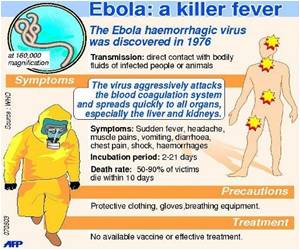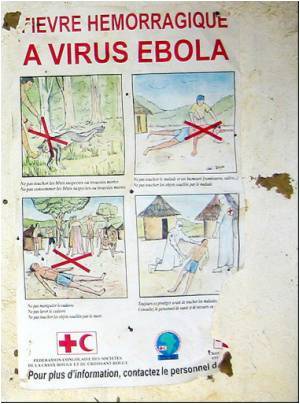Icahn School of Medicine researchers say that disabling a protein in Ebola virus cells can stop the virus from replicating and infecting the host.

"Ebola viruses are extremely lethal, and are a great threat to human health as a bioweapon," said Dr. Basler. "Currently, there is no approved vaccine or treatment. Our findings will hopefully pave the way for future antiviral treatments."
With the help of collaborators at the University of Texas with access to special high containment facilities, Dr. Basler and his team infected healthy cells with Ebola virus cells that had mutated versions of VP35. The mutations disabled VP35's ability to interact with PACT, therefore allowing it to activate the immune system and prevent the virus from replicating. Next, the researchers overexpressed PACT in healthy cells, and infected them with Ebola virus cells. They found that overexpressing PACT also inhibited viral replication.
Armed with this discovery, Dr. Basler and his team hope to develop drugs that disrupt the interaction of VP35 with PACT, or drugs that overexpress PACT.
Source-Eurekalert











